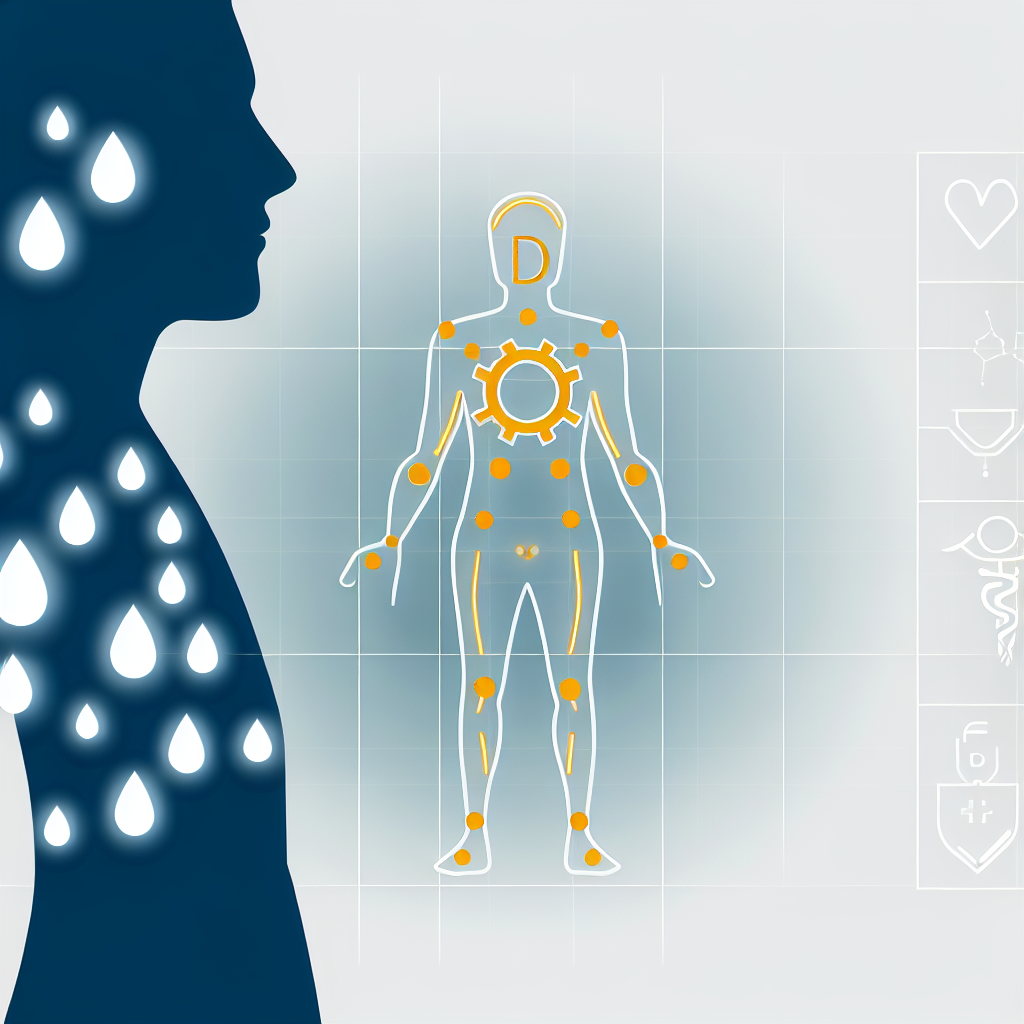Have you been feeling perpetually tired or dealing with unexplained aches and mood swings? Perhaps you’ve noticed unexpected hair thinning or an increase in illnesses. These could all be subtle signs of a vitamin D deficiency—a health issue affecting millions worldwide.
Despite being nicknamed the “sunshine vitamin,” vitamin D deficiency is surprisingly common, and its symptoms can often go unnoticed. Left unchecked, it can lead to serious health conditions like osteoporosis, weakened immunity, and cardiovascular risks. No need to panic—knowing the signs can help you address and prevent the problem effectively.
What Happens When Your Vitamin D Levels Drop?
Vitamin D is an essential nutrient that helps the body absorb calcium and phosphorus, strengthens immunity, regulates mood, and supports muscle repair. In short, it’s vital for keeping you healthy.
The majority of vitamin D is produced when your skin is exposed to sunlight, but modern lifestyles often limit our time outdoors. Add in diets that lack vitamin-D-rich foods—such as fatty fish, egg yolks, and fortified dairy products—and the perfect storm for deficiency emerges.
When vitamin D levels are too low, the body can’t function optimally, and it starts giving off warning signs. Let’s dive into the early symptoms and what they mean for your overall health.
Recognizing the First Signs of Vitamin D Deficiency
Vitamin D deficiency symptoms can be subtle at first, making it easy to overlook them or attribute them to other factors. Being aware of these early signs can prevent more serious health problems later.
Fatigue That Sneaks Up on You
Are you always feeling worn out, no matter how much sleep you get? Persistent fatigue is one of the most common signs of low vitamin D levels. When your cells lack this nutrient, they can’t produce energy efficiently, leaving you constantly drained.
Unexplained Aches and Pains
If you’re experiencing joint stiffness or nagging muscle soreness, despite minimal physical activity, this could be your body's way of signaling low vitamin D levels. These aches can resemble arthritis symptoms and may worsen over time if untreated.
Mood Swings or Depression
Vitamin D directly influences serotonin production, the hormone that helps regulate mood. Low levels can lead to feelings of irritability, sadness, or even clinical depression. Seasonal mood changes, often called “winter blues,” are sometimes linked to lower vitamin D levels during months with less sunlight.
Thinning Hair or Hair Loss
If you’re noticing more hair in the drain or on your brush, vitamin D deficiency might be contributing. This nutrient is involved in hair follicle health, and a lack of it can disrupt the growth cycle, leading to thinning or loss.
How Severe Vitamin D Deficiency Impacts Health
If left untreated, mild vitamin D deficiency can progress into more serious complications, significantly impacting your quality of life.
Fragile Bones and Osteoporosis
Vitamin D is essential for calcium absorption, which keeps bones strong. Without it, bones become brittle over time—a condition known as osteoporosis. This most commonly affects older adults, making fractures from minor falls more likely.
A Weakened Immune System
Low vitamin D levels are known to weaken immunity, leaving you vulnerable to frequent colds, flu, and respiratory infections. If you’re noticing that you’re catching illnesses more easily or taking longer to recover, this could be the cause.
Cardiovascular Risks
Emerging research suggests a link between low vitamin D and heart-related issues, including higher blood pressure and an increased risk of heart disease. This highlights the nutrient’s role in overall cardiovascular health.
Rickets in Children
In severe cases, vitamin D deficiency in children can lead to a condition known as rickets, where bones become soft and weak, often resulting in deformities. While rare in regions with fortified foods, it remains a concern in areas with limited nutritional access.
Identifying Vitamin D Deficiency Risk Factors
Certain lifestyle habits, health conditions, and age groups are at higher risk of developing a vitamin D deficiency. Understanding these factors can help you take preventive steps.
- Indoor Lifestyles: Spending too much time indoors or consistently using sunscreen can prevent your skin from producing vitamin D through sunlight exposure.
- Aging: As we age, our bodies become less efficient at producing vitamin D from exposure to sunlight, putting older adults at higher risk.
- Chronic Health Conditions: Conditions like Crohn’s disease, celiac disease, or kidney disorders can inhibit the body’s ability to absorb or process vitamin D.
- Dietary Gaps: Those following restrictive diets, especially vegetarian or vegan, may miss out on vitamin-D-rich animal-based foods like fish, eggs, and dairy.
Simple Steps to Prevent and Treat Vitamin D Deficiency
The good news is that maintaining healthy vitamin D levels isn’t complicated. These practical tips can help you address and prevent deficiency:
- Eat More Vitamin-D-Rich Foods: Fatty fish like salmon, mackerel, and tuna are excellent sources. Other options include egg yolks, fortified milk, cereals, and plant-based alternatives like fortified almond or soy milk.
- Get Sunlight Safely: Aim for 15–30 minutes of sunlight exposure on your face, arms, and legs a few times per week. Be mindful of UV protection if you’re outdoors for extended periods.
- Consider Supplements: If sunlight and diet aren’t enough, supplements—particularly Vitamin D3—can help. Consult your healthcare provider to find the right dosage.
- Monitor Vitamin D Levels: A simple blood test can measure your levels and track progress if you suspect a deficiency.
Why Recognizing Low Vitamin D Is Key to Better Health
Low vitamin D might start out as subtle signs like fatigue or aches, but the long-term consequences can be severe. Recognizing the symptoms early and taking action can safeguard your health and prevent complications.
Whether it’s through dietary adjustments, regular sunlight exposure, or supplements, improving your vitamin D levels is entirely manageable. Pay attention to your body’s signals and start taking proactive steps today. You’ll feel stronger, healthier, and more energized—and your future self will thank you for it.
